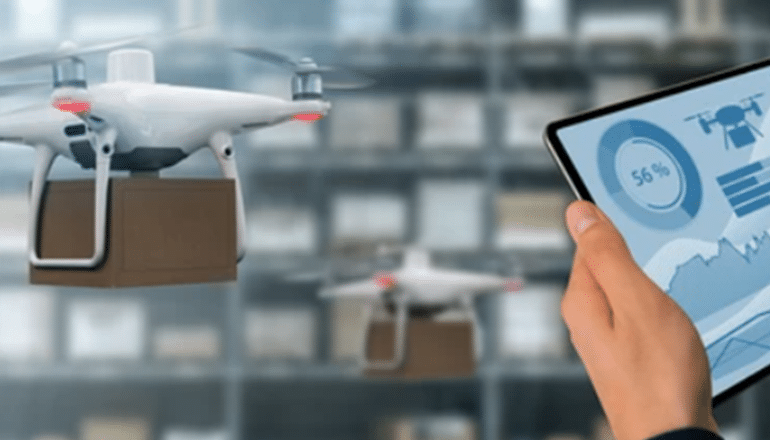How to Achieve Digital Transformation in Logistics?
May 17, 2023 Logistics
Digital transformation in Logistics
The logistics industry is gradually embracing and adopting new advances to accomplish productivity in their organization and transparency in their work ethics. The adoption of innovative techniques has caused the logistics business to make huge profitability gains.
Given underneath are the approaches to accomplish advanced change in the logistics industry:
Artificial Intelligence: Artificial knowledge has been playing a huge function in the logistics business. The supply chain network comprises monstrously organized and unstructured information. Logistics industries can then drastically change their tasks by identifying patterns and producing helpful bits of knowledge into each inventory network interface.
Normal language preparation (NPL) has assisted calculated organizations with recognizing monetary irregularities by extricating the solicitations’ essential data. The network management can distinguish potential delivery deferrals and help organizations plan cargo all the more proficiently. With NLP’s assistance, the production network can be checked, and remedial measures can be made.
Machine Learning: Machine learning can help organizations and associations reveal designs in the supply chain by utilizing explicit algorithms that assist figures that influence the supply network’s success. With the assistance of these elements, a logistics company can upgrade provider quality, accomplish stock levels, figure interest, and oversee transportation. It additionally gives the logistics sector valuable data that decreases cargo costs, improves provider execution, and limits supplier risk.
IoT Track and Trace: Assets can be followed among assembling and merchant premises, conveyances, materials, can be evaluated around your assembling office, and examination of the information made by following these resources help the logistics sector to identify designs, enhance customer experience, and spot a likely breakdown in the inventory network. This assists with lessening cost, upgrading client support, and increasing delivery transparency for the clients. With this, fleet management can also benefit, while sensors on vehicles can upgrade corporate social duty (CSR) and representative security. IoT tracking and tracing makes it more productive for the organizations by improving detectability and controlling cargo, in this manner expanding the benefits.
Blockchain: Blockchain helps to initiate transparency for the clients by helping them in tracking the item’s whole route before it reaches them. It can make audits more transparent and improve security by recognizing the frauds quicker and faster. Blockchain can be characterized as an innovation more appropriate for the transportation business as it permits the organizations to take part in trade in a more comprehensive way. It helps make the logistics cycle more compelling, save the organization’s time, and convey an improved client experience. It assists the organizations with building up more noteworthy trust, empower more intelligent agreements, and make digital payments more secure.
Autonomous vehicles and platooning: Autonomous vehicles are assistance that is more common in air terminals, stockrooms, ports, and other inventory network areas. Self-governing trucks will before long be in real life to convey merchandise to be dumped by forklifts and put in warehouses with the assistance of transport lines. This will lessen the expense altogether. The vehicle platooning innovation will improve eco-friendliness, wellbeing, and operational productivity. The platooning of trucks will arise as a cost-sparing choice for the logistics industry. It will likewise help decrease carbon emission from the logistics sector.
Outsourcing: Outsourcing or third-party logistics assists organizations with controlling expenses and diminish overheads to benefit from external suppliers’ skills. It additionally permits logistics companies to improve customized on-demand transportation, warehousing, conveyance, and cargo administrations. Along these lines, the logistics companies will depend on external providers for supply chain and transportation needs. With the essential utilization of outside parties, business independence can be accomplished. It empowers total transparency, material flow optimization, efficiency gain, and data ownership and visibility.
Conclusion
The digital transformation is something inevitable for the logistics business to grow its market, rise dramatically, and keep up its situation as an industry chief. It is vital for endurance, too.


